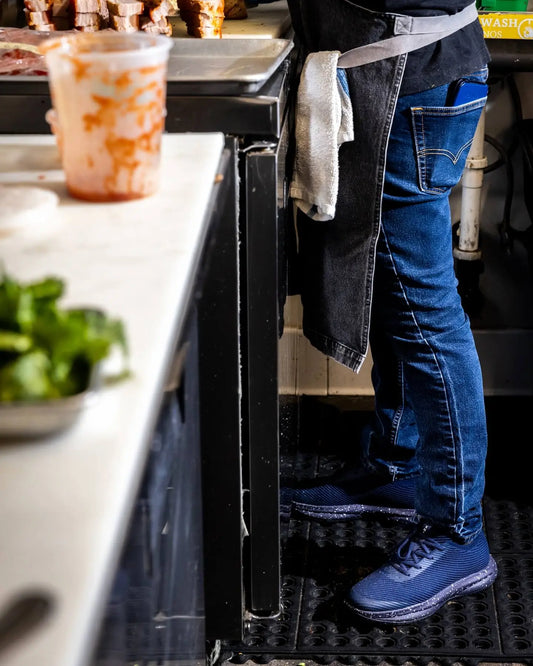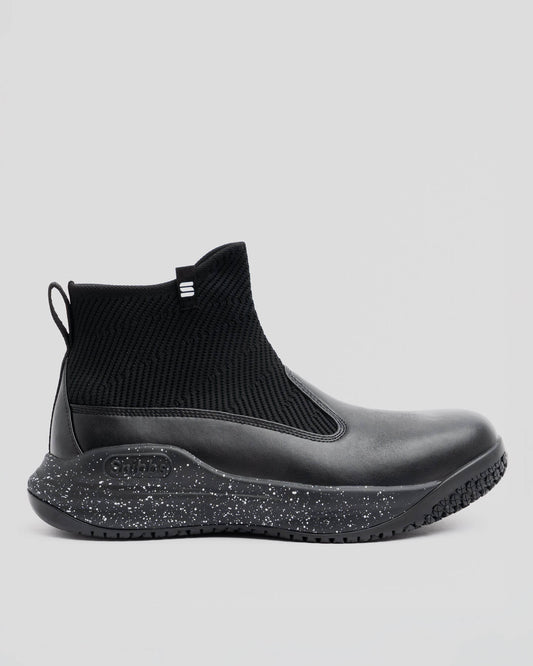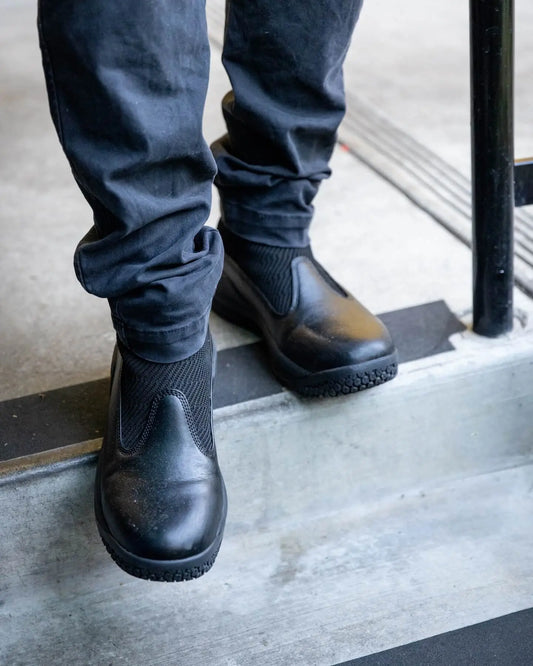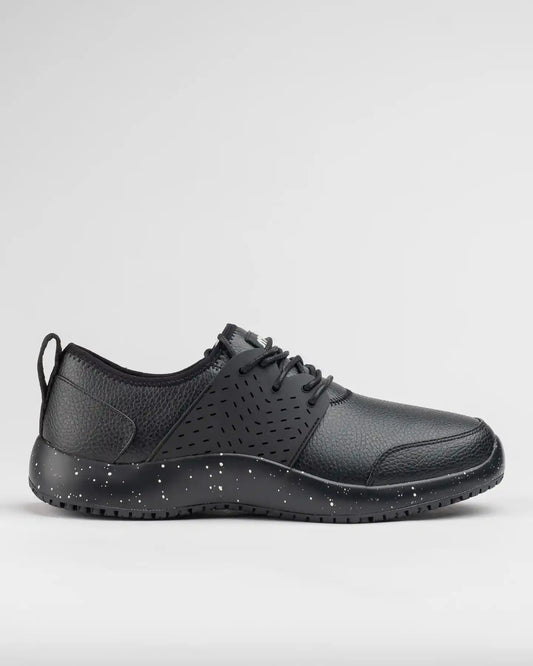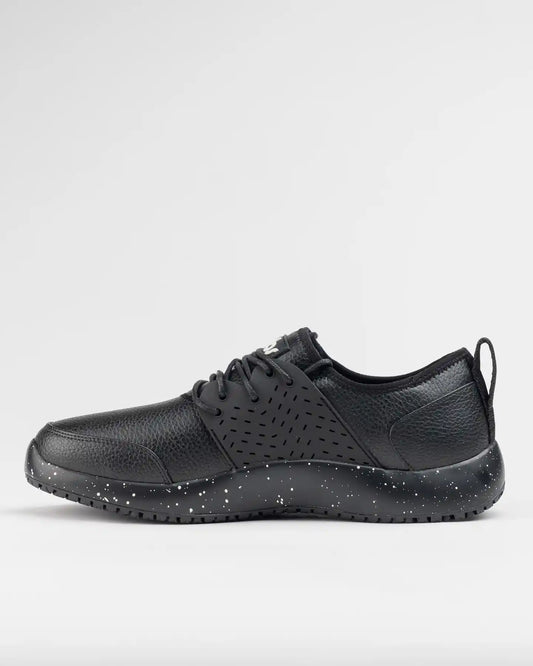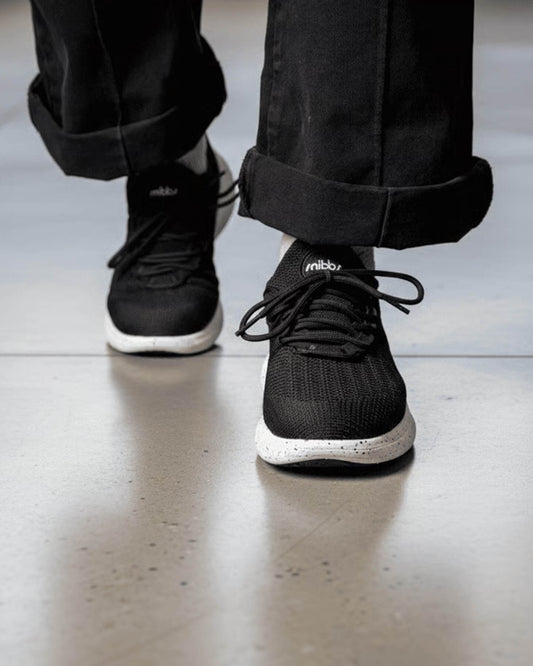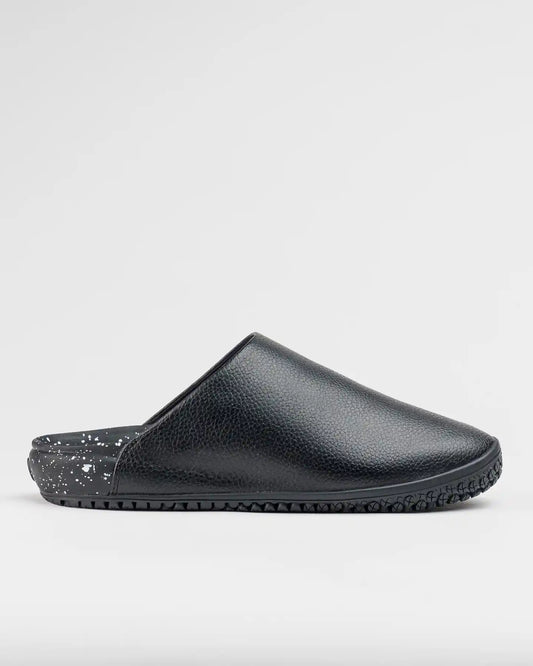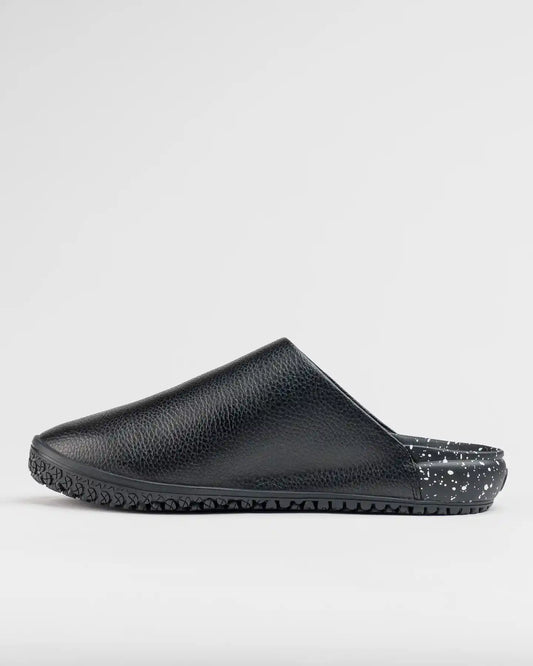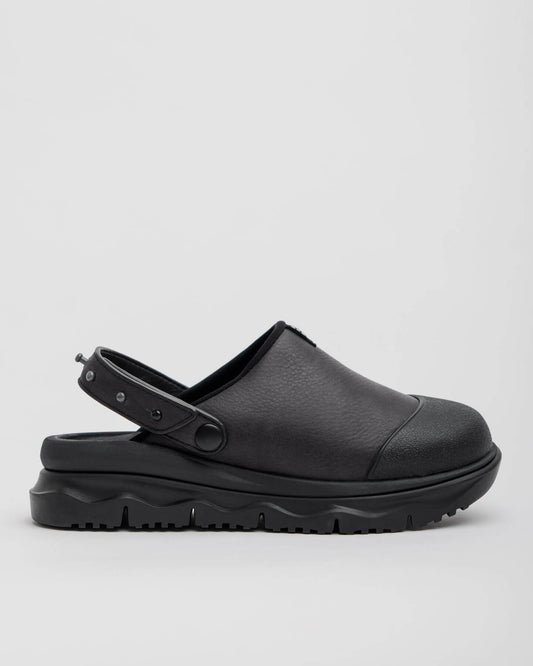5 Most Common Challenges of Being a Chef
Snibbs Footwear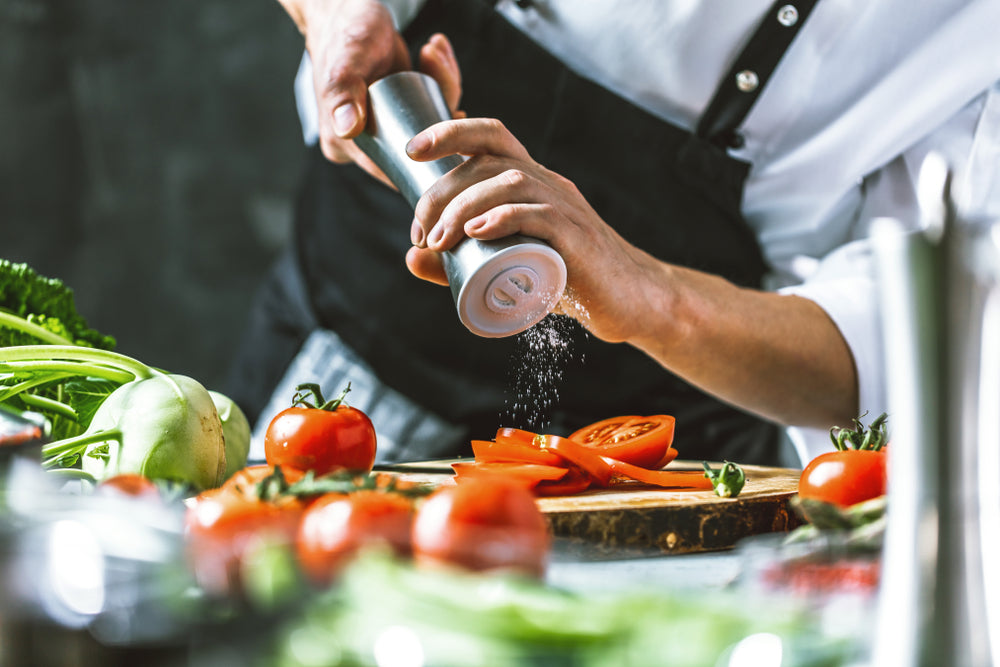
In the culinary world, where passion meets precision, a chef’s life is far from a piece of cake. Behind the scenes of exquisite dishes and culinary artistry, chefs navigate a maze of challenges that test their culinary skills, dedication, and resilience.
From the demanding work environment to long hours, stress management, and financial hurdles, the journey of a professional chef is a complex recipe. Let’s delve into chefs' obstacles and challenges and explore valuable insights and strategies to help overcome them.
1. High-Pressure Work Environment
Every profession in the culinary industry is known for its fast-paced, high-pressure work environment. Chefs work in hot kitchens, surrounded by sharp knives and bustling activity. This constant intensity can lead to stress, exhaustion, and chef burnout.
To navigate this challenge, a professional chef can employ the following strategies:
- Embrace effective time management techniques to ensure smooth operations in the kitchen.
- Foster a positive work culture by promoting open communication and teamwork.
- Implement stress management techniques like mindfulness, deep breathing, and regular breaks.
- Seek support from mentors or culinary associations to share experiences and seek guidance.
2. Long Hours and Work-Life Balance
Similar to any profession, there are pros and cons of being a chef. One of chefs' most significant challenges is the long and irregular working hours. They often sacrifice personal time, family gatherings, and special occasions to ensure the smooth running of their kitchens. Balancing personal life, relationships, and self-care amidst the demanding schedule poses a significant challenge. To maintain a healthier work-life balance, chefs and their kitchen staff can consider:
- Prioritizing self-care by setting aside time for relaxation, exercise, and personal hobbies.
- Delegating tasks and empowering the kitchen staff to share responsibilities.
- Creating a schedule that allows for dedicated time with loved ones.
- Exploring flexible work arrangements or alternative chef career paths within the culinary field.
3. High Stress Levels
Stress is an inherent part of a chef's life. After all, stress becomes a constant companion for chefs and kitchen staff within the high-pressure environment. Meeting high expectations, dealing with demanding customers, and striving for culinary excellence can take a toll on mental and physical well-being, which can cause high staff turnover. To manage stress effectively, chefs can implement the following practices:
- Regular exercise and physical activities to release tension and boost endorphins.
- Practice mindfulness and meditation techniques to cultivate mental clarity and reduce stress.
- Seek professional help or counseling when needed to address work-related stress or emotional challenges.
- Prioritize sleep and healthy eating habits to support overall well-being.
4. Financial Challenges and Job Insecurity
Financial challenges and job insecurity are common hurdles chefs face in the culinary industry. Starting their own restaurant or pursuing a culinary dream can be financially draining. To navigate these challenges, chefs can adopt the following approaches:
- Develop a comprehensive business plan and financial strategy before venturing into entrepreneurship.
- Seek financial assistance or grants available for aspiring chefs or culinary entrepreneurs.
- Explore collaborations and partnerships with local suppliers or other chefs to reduce costs.
- Continuously enhance culinary skills and knowledge to increase job opportunities and career growth.
5. Battling Physical Strains on the Body
The physically demanding nature of the culinary profession puts chefs at risk of experiencing physical fatigue and related health issues. Whether standing for long periods or constant movement, this can take a significant toll on the body and lead to fatigue, joint pain, and discomfort.
Back Pain
One of the most prevalent challenges chefs face is back pain.1 The combination of standing for long hours and performing tasks that require bending and lifting can strain the back muscles and spine. The improper posture adopted in the kitchen can worsen the problem.
Maintaining good posture while working is important to help avoid back pain. Investing in supportive kitchen footwear that provides adequate arch support and cushioning can also be beneficial.2 Incorporating exercises and stretches that strengthen the core and back muscles can also help ease back pain.
Foot Sprains and Injuries
Chefs are no strangers to foot sprains and injuries. The fast-paced professional kitchen environment, long hours of standing, and intense physical activity put their feet at risk. From slips and falls to strained ligaments and arch issues, individuals must be cautious about foot health to keep up with their culinary endeavors and avoid these common chef injuries.
Additionally, prolonged stress on the feet can lead to cartilage thinning in the foot joints and result in what is known as ‘Chef’s Foot.’ 3While it may seem insignificant, the big toe is crucial in maintaining balance and providing support during walking. Modern chefs are also prone to conditions like plantar fasciitis, causing severe heel pain due to inadequate arch support.3 The continuous strain on their feet increases the risk of developing arthritis.
Proper footwear, regular stretching, and taking breaks to elevate and rest their feet can help chefs and the kitchen staff mitigate the risk of foot sprains and injuries, ensuring they stay on their toes in the professional kitchen.
Shoe Support
The right choice of kitchen shoes is paramount for chefs to combat physical fatigue. Wearing unsupportive shoes can amplify the strain on the feet, legs, and back and contribute to discomfort and fatigue. Instead, opt for kitchen shoes specifically designed for chefs with features such as slip resistance and adequate arch support. Look for shoes with cushioning and shock-absorbing features to reduce the impact on joints. Lastly, you can consider adding insoles or orthotic inserts for added support.
Navigate Culinary Challenges with Snibbs
The challenges modern chefs face in their culinary careers can be significant. From managing the high-pressure work environment to balancing long hours and maintaining well-being, chefs need to develop resilience, seek support, and implement effective strategies. The path of a professional chef may be challenging, but with passion, perseverance, and a focus on personal growth, individuals can create culinary masterpieces while maintaining a balanced and fulfilling career.
As Snibbs, we’re aware of the obstacles culinary professionals face daily, which is why we’ve helped you tackle a significant one: physical strain and pain. We know how important it is to have durable shoes that provide sustainable comfort for those long days of being on your feet. Our non-slip professional kitchen shoes feature a rugged grip and breathable material to support your foot and back.
Sources:
- Total Food Service. Potential Chef Health & Safety Risks. https://totalfood.com/the-potential-health-risks-of-being-a-chef/
- HealthWise Chiropractic. How Your Shoe Choices Affect Your Back and Spine. https://www.healthwisechiro.net/how-your-shoe-choices-affect-your-back-and-spine
- Aprons and Smocks. Chef’s Foot: Time to Take a Stand For Your Feet. https://www.apronsandsmocks.com/articles/chefs-foot-time-to-take-a-stand-for-your-feet/


